Changes to the Flat Rate VAT Scheme are coming - are YOU ready?
Article Author: Paul Gough Posted on: March 22, 2017 (Full Author Bio in the box on the right side) 2888 views
2888 views
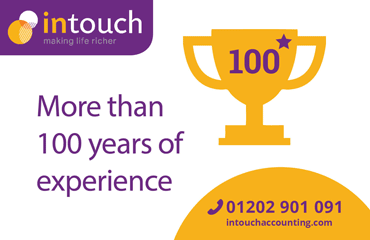
In less than two weeks, changes to the Flat Rate VAT Scheme will come into force, which will affect almost all Limited Company contractors.
In this blog, we take a look at what these changes are, and what can you do to calculate the effect it will have on you.
The Flat Rate VAT Scheme (FRS)
The FRS was designed to simplify VAT for businesses with an expected turnover less than £150,000 (£180,000 including VAT). Many contractors use FRS for its simplicity, but also because the financial benefit is greater than using the standard method.
How does it currently work?
VAT is added to your invoices to clients, typically at 20% on the value of your services. But then, instead of reducing that VAT received from your clients by the VAT you incur on expenses, and paying the net amount to HMRC, you simply pay a fixed percentage of the VAT inclusive turnover. The percentage adopted for this depends on selecting an FRS category that best suits your business activity.
Although the FRS was originally designed to be a simplification of the administrative process and not provide a financial benefit, for many contractors the amount of VAT retained is higher than actually incurred.
So why is there any change?
Sadly, the FRS has become the target of abuse and has become a means to compensate for the loss of tax relief on expenses by former Umbrella workers. HMRC has acted quickly to counteract the actions of this abuse and imposed changes that remove that benefit.
What do those changes mean?
From 1 April 2017, a new Flat Rate percentage of 16.5% has been introduced. This percentage overrides the existing FRS category percentage rate used, but only when a business falls within a wholly new Limited Cost Trader (LCT) definition.
To explain, if your business has adopted the “Computer and IT Consultancy and Data Processing” category you would normally apply the flat rate of 14.5%. Under the new rules, for a VAT quarter where you meet the meaning of LCT, the 14.5% is replaced by 16.5%.
What is a Limited Cost Trader?
An LCT is a business that incurs expenditure during a VAT Return period on Relevant Goods less than the greater of:
a) £1,000 per annum (pro rata for the duration of a VAT period) and
b) 2% of VAT inclusive turnover for that period.
If you adopt quarterly VAT Returns this is considered at the end of every VAT quarter, if you adopt the Annual Accounting method then it is assessed at the end of the full year. If you adopt the cash accounting basis rather than the invoice accruals basis then the turnover considered is the VAT inclusive value of any cash received in the VAT period.
How does this work for VAT Return periods ending in April 2017 or May 2017?
If you are an LCT for any quarter that includes April 2017 then your VAT liability will use the normal category percentage for periods prior to 1 April 2017 and the new 16.5% rate for the period from 1 April 2017.
Should I reassess my VAT periods?
There is no benefit to changing your VAT periods just for the sake of it. More information about this is available in our free ebrief.
What are Relevant Goods?
Purchases will fall within one of two categories known as Goods or Services. Goods tend to be tangible, moveable items, where title or ownership physically passes from one to another. Services are everything else.
For LCT purposes, Relevant Goods are goods that are used only for the purposes of your main business activity and they exclude costs that are personal or partially so. For examples of relevant and non relevant goods, and also an easy-to-use infographic on how you can tell whether a specific good is relevant, download our free FRS ebrief.
What are your options?
You can deregister from VAT, switch to the Standard Scheme, or remain in the Flat Rate Scheme. Download our free FRS ebrief to understand the effects each option will have.
How Intouch Accounting can help
Our team of Personal Accountants are currently providing expert tailored advice to their clients, regarding which scheme will provide the best outcome for them. If this sounds like the type of support you need, get in touch today, or for our full coverage of the FRS changes with working examples, download our free ebrief.
Latest Posts
-

Staying HMRC Compliant: VAT Returns Have Chan...
by Amanda Swales on January 29, 2020 Accounting & Tax -

Self Assessment Tax Return 101 - Filling In T...
by Amanda Swales on January 15, 2020 Accounting & Tax -

-



 Beginners Guide to IT Contracting
Beginners Guide to IT Contracting  Is there light at the end of the tunnel for UK Contractors
Is there light at the end of the tunnel for UK Contractors  Election 2015 - what is in it for contractors and freelancers
Election 2015 - what is in it for contractors and freelancers  How will Autumn statement affect Contractors?
How will Autumn statement affect Contractors?  Contractor paid 2500 GBP to HMRC for tax return mess up
Contractor paid 2500 GBP to HMRC for tax return mess up  APSCo backs call for strategic review which could end raw deal for contractors
APSCo backs call for strategic review which could end raw deal for contractors  5 benefits of contracting through an umbrella company
5 benefits of contracting through an umbrella company  How does the recent IR35 changes in the public sector affect UK contractors?
How does the recent IR35 changes in the public sector affect UK contractors?  What a Directors loan means and who can take one
What a Directors loan means and who can take one  The golden rule of Contracting
The golden rule of Contracting  How to deal with unplanned time off for UK Contractors
How to deal with unplanned time off for UK Contractors  Why Contractors should never stop learning
Why Contractors should never stop learning 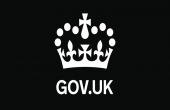 Parents working full time file petition for free childcare
Parents working full time file petition for free childcare  Understanding tax basics - a guide for contractors
Understanding tax basics - a guide for contractors  UK plc confused about T&S regulations says FCSA research
UK plc confused about T&S regulations says FCSA research  What is Required For Your First Digital VAT Return: Making Tax Digital
What is Required For Your First Digital VAT Return: Making Tax Digital 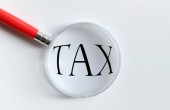 IR35 IT Contractors And Office Holders
IR35 IT Contractors And Office Holders  Why Contractors Need To Understand IR35
Why Contractors Need To Understand IR35 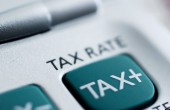 Chancellor announced dividend tax hike from April 2016
Chancellor announced dividend tax hike from April 2016  6 free tools all contractors should use
6 free tools all contractors should use  What all recruiters need to know
What all recruiters need to know  Fun ways to save money for the adventurous contractor
Fun ways to save money for the adventurous contractor  Budget is good for small business but still hurts contractors
Budget is good for small business but still hurts contractors  Is Umbrella Company the best solution for first-time Contractors?
Is Umbrella Company the best solution for first-time Contractors?  Simple guide to Tax relief on Motor expenses and business mileage
Simple guide to Tax relief on Motor expenses and business mileage  10 Must Have iOS Apps for UK Contractors
10 Must Have iOS Apps for UK Contractors  The rise of the female contractor
The rise of the female contractor  Why Contractors should set up a home office
Why Contractors should set up a home office  5 Trusted Contractor Services Providers in the UK
5 Trusted Contractor Services Providers in the UK  A checklist and timeline for new Contractors
A checklist and timeline for new Contractors  How to avoid time between contracts
How to avoid time between contracts  How can a contractor be a winner in the tax race
How can a contractor be a winner in the tax race  The top 3 common mistakes Contractors make
The top 3 common mistakes Contractors make  The true value of umbrella companies for UK contractors
The true value of umbrella companies for UK contractors  Autumn Statement 2016 - How will the VAT Flat Rate Scheme Restriction Affect Contractors?
Autumn Statement 2016 - How will the VAT Flat Rate Scheme Restriction Affect Contractors?  FCSA calls for HMRC to abandon its consultation on public sector use of off payroll staff
FCSA calls for HMRC to abandon its consultation on public sector use of off payroll staff  Great Chance to Win a Trip to Monaco for IT Contractors
Great Chance to Win a Trip to Monaco for IT Contractors  How will the new tax year affect IT Contractors and Umbrella Companies
How will the new tax year affect IT Contractors and Umbrella Companies  Umbrella Company and IR35
Umbrella Company and IR35  The 10 commandments of contracting
The 10 commandments of contracting  Why compliance has lost its meaning for contractors
Why compliance has lost its meaning for contractors  Why Contractors MUST Download TeraCopy Freeware
Why Contractors MUST Download TeraCopy Freeware  Do I Need To Complete The Self Assessment? How To Know If You Have A Tax Return Due
Do I Need To Complete The Self Assessment? How To Know If You Have A Tax Return Due  Registrar of Companies Scam Letter sent to Businesses
Registrar of Companies Scam Letter sent to Businesses  Why Contractors in trust based schemes should think twice
Why Contractors in trust based schemes should think twice  Is contracting the key to a successful and family-friendly career
Is contracting the key to a successful and family-friendly career  Is it time to break up with your Accountant
Is it time to break up with your Accountant  What forms do I need to submit In my tax return?
What forms do I need to submit In my tax return? 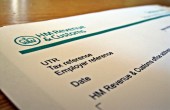 How Important is IR35 and Tax Planning to Contractor Accountants
How Important is IR35 and Tax Planning to Contractor Accountants  Festive Gift Ideas for Limited Company Directors
Festive Gift Ideas for Limited Company Directors  Barclays and Citigroup are the latest to cut IT Contractor pay
Barclays and Citigroup are the latest to cut IT Contractor pay  HMRC admits contractor tax change legislation needs a rewrite
HMRC admits contractor tax change legislation needs a rewrite  Amendments in Finance Bill to prevent misuse of Personal Service Companies
Amendments in Finance Bill to prevent misuse of Personal Service Companies  How IR35 reforms in the private sector going to affect the self-employed?
How IR35 reforms in the private sector going to affect the self-employed?  Benefits for Freelance Contractor Mortgages Insurance
Benefits for Freelance Contractor Mortgages Insurance  HMRC Employment Status Service tool - How accurate is it in determining the IR35 risk for contractors?
HMRC Employment Status Service tool - How accurate is it in determining the IR35 risk for contractors?  Changes to the Flat Rate VAT Scheme are coming - are YOU ready?
Changes to the Flat Rate VAT Scheme are coming - are YOU ready?  RTI offers annual option for contractors
RTI offers annual option for contractors  Why Brexit will not be an easy exit
Why Brexit will not be an easy exit  Doubt is cast on HMRC new IR35 proposals for contractors
Doubt is cast on HMRC new IR35 proposals for contractors  How much salary should I pay myself as a Limited Company Contractor
How much salary should I pay myself as a Limited Company Contractor  Sole Enterprise with Protected Assets or Limited Company - Which is better for Contractors?
Sole Enterprise with Protected Assets or Limited Company - Which is better for Contractors?  Top 5 things a first-time Contractor should do when switching to Contracting
Top 5 things a first-time Contractor should do when switching to Contracting  Contractors feel puzzled of the UK job market
Contractors feel puzzled of the UK job market  What is the 24 month rule and how does it apply to Contractors
What is the 24 month rule and how does it apply to Contractors 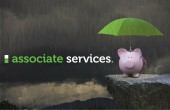 Why Contractors should save for a rainy day
Why Contractors should save for a rainy day  What does change in dividends mean to UK Contractors
What does change in dividends mean to UK Contractors  Professional Indemnity Insurance Explained
Professional Indemnity Insurance Explained  FCSA urges Osborne to get his facts right before tarnishing all contractors
FCSA urges Osborne to get his facts right before tarnishing all contractors  The Taxman is going to war on UK Contractors
The Taxman is going to war on UK Contractors  Intermediaries' legislation - IR35: What is the likely impact of the new rules for contractors working in the public sector?
Intermediaries' legislation - IR35: What is the likely impact of the new rules for contractors working in the public sector?  What can Limited Company contractors expect from the Budget 2017?
What can Limited Company contractors expect from the Budget 2017?  FCSA submits its official response to the HMRC consultation
FCSA submits its official response to the HMRC consultation  How HMRC continue to confuse matters for Contractors and Agencies
How HMRC continue to confuse matters for Contractors and Agencies  General Elections from the Tax perspective for UK Contractors
General Elections from the Tax perspective for UK Contractors  Top 10 cash flow tips for IT Contractors
Top 10 cash flow tips for IT Contractors  Personal Service Company Guide for UK Contractors
Personal Service Company Guide for UK Contractors  What is Contractor Mortgages and how to secure the best mortgage deal?
What is Contractor Mortgages and how to secure the best mortgage deal?  How will Supervision Direction or Control rules affect Contractors
How will Supervision Direction or Control rules affect Contractors  Why it is important for Contractors to network effectively
Why it is important for Contractors to network effectively 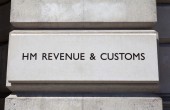 RIP Business Entity Tests
RIP Business Entity Tests  How the 2015 Budget could affect you as an Independent Contractor
How the 2015 Budget could affect you as an Independent Contractor  How IT Contractors can become an expenses wizard
How IT Contractors can become an expenses wizard  The future of IR35 in the public and private sectors
The future of IR35 in the public and private sectors  Insulting to Contractors
Insulting to Contractors  MP David Morris calls for new IR35 legislation for Contractors
MP David Morris calls for new IR35 legislation for Contractors  How important is it to protect your income as a contractor
How important is it to protect your income as a contractor  Where is your IT contracting career going
Where is your IT contracting career going  Relieve the stresses of Limited Company contracting with 4 simple solutions
Relieve the stresses of Limited Company contracting with 4 simple solutions  Will the low rates mortgage price war benefit UK Contractors?
Will the low rates mortgage price war benefit UK Contractors?  5 New Contractor Mortgages Friendly Lenders Enter The Market
5 New Contractor Mortgages Friendly Lenders Enter The Market  First Time Buyers take advantage of the new Help to Buy ISA
First Time Buyers take advantage of the new Help to Buy ISA  First Time Buyers get cashback on Contractor Mortgages
First Time Buyers get cashback on Contractor Mortgages 

